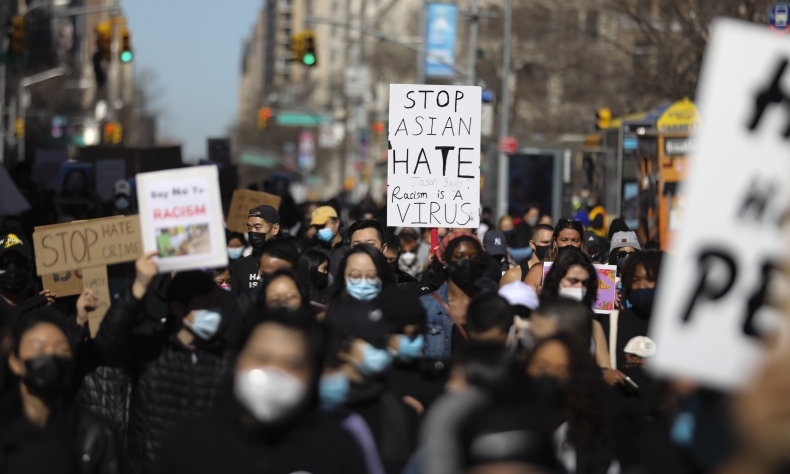Anti-Asian Hate Crimes Epidemic Spreads Across US

If we want to stop these attacks over the long run, we need to eliminate the harmful stereotypes that fuel the hate in the first place.
When coronavirus spread around the world, anti-Asian discrimination spread with it.
People began avoiding Chinese restaurants and businesses run by citizens of Asian descent. Racist terminology was created to refer to the virus. The then-president of the United States, Donald Trump, called it “kung flu.” That hate led to real life attacks on Asian people. It came to a head in Atlanta where a racist terrorist massacred eight people, including six Asian-American women.
There have been incidents of anti-Asian hatred around the world, but it seems to be worse in the United States, because of the already high levels of violence and racial tension in the country aimed at Asian-Americans promoted by negative stereotypes since long before COVID-19 merged to exacerbate the problem.
However, it was not the only factor in this recent spate of hate crimes.
First, Asians have been exoticized, portrayed as “strange” and “alien” in the American media. The “Yellow Peril” narrative resulted in the Chinese Exclusion Act being passed in 1882. The COVID-19 pandemic did not bring about the creation of the “alien” stereotypes of Asians, it merely caused the resurrection of an old smear.
The perpetrators of many of the assaults and murders of Asian-Americans in places like San Francisco have been black. When the immigration system was reformed in the 1960s, people from Asian countries were allowed to come to America again, and they frequently moved into urban centers and opened businesses, where there were large black populations, following a trend among immigrants throughout history.
Some black people came to resent Asian-Americans, in line with the stereotypes. That racist view was expressed in songs like Ice Cube’s “Black Korea.” Many of the physical attacks on Asians in San Francisco and Los Angeles, Ice Cube’s hometown and the site of the 1992 anti-Korean race riots, are caused by that hateful stereotype that Asian-Americans “don’t belong” in the very communities in which they bought homes and invested in businesses.
This was accompanied by the idea that Asians are weak and docile, a stereotype famously portrayed in movies like “Breakfast at Tiffany’s.” Many of the targets are elderly and female. One violent criminal who punched and robbed a senior citizen in Oakland reportedly had a “history of victimizing elderly Asian people.”
Elderly Asian women might appear easy pickings for racists until the racist encounters someone like Xiao Zhen Xie. The 75-year-old San Franciscan smacked a 39-year-old white man in the face with a wooden paddle she found on the ground after the younger man randomly sucker punched her while fleeing from an earlier assault he committed on an 82-year-old Asian man.
The pattern of assaults, however, has taken some time to attract media attention and often been downplayed or distorted when it has. Still today, many American pundits are debating whether the Atlanta mass killer was motivated by racism or because of a so-called “sex addiction.” The street-level attacks have been dismissed as “crimes of opportunity.”
However, if the target of a crime is chosen because of stereotypes related to their race, then that is indeed racism. It may not be possible to interrogate the motivations of the attackers in each and every case, but if attacks on Asian-Americans have increased by 150 percent, as reported by the group Stop AAPI Hate, then a great deal of those were caused by the attacker’s racist beliefs.
If Asians are stereotyped as docile and easy pickings and then they are robbed or beaten for that reason, then that is linked to the persistence of a racist stereotype. If a creepy man who claims to have a “sex addiction” intentionally targets Asian massage parlors because he holds a sexualized view of Asian women and blames them, rather than himself, for his refusal to control his own actions, then that loser was acting on the racist and misogynistic stereotypes he holds.
The police must increase their presence in Asian communities, and bystanders must become vigilant to look out for the elderly of Asian descend and intervene when there’s an attack. Americans must try to address the immediate problem; but if we want to stop these attacks over the long run, we need to eliminate the harmful stereotypes that fuel the hate in the first place.
 Facebook
Facebook
 Twitter
Twitter
 Linkedin
Linkedin
 Google +
Google +










